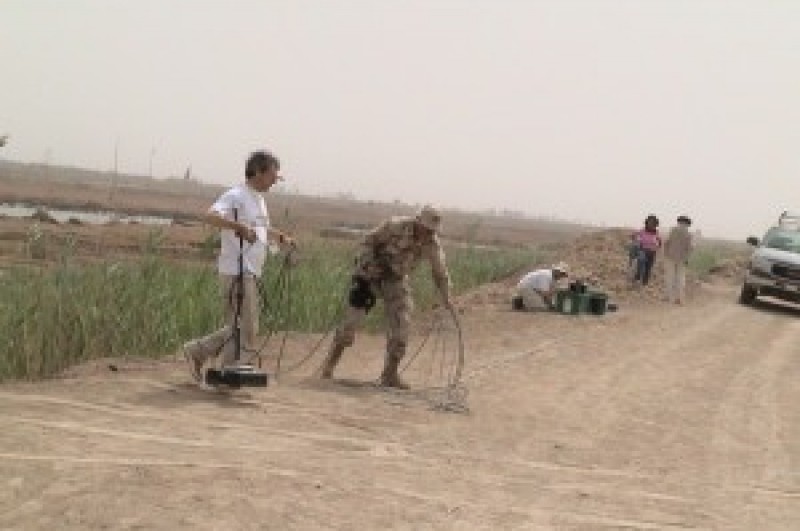A high standard of forensic investigation of mass graves is important for two reasons. Firstly, evidence can be used in national and international criminal prosecutions to successfully bring those responsible for atrocities to justice. Secondly, there is an overwhelming need for families to know the truth about their loved ones and carry out burial and commemoration when the missing are positively identified.
Before BU’s research there were no comprehensive published standard protocols or policies for the scientific investigation of mass graves. Lack of consistency and understanding in forensic and scientific processes may lead to work notwithstanding legal scrutiny.
BU’s programme of research focuses on location, evaluation, excavation, recovery, recording of crimes scenes and the analysis and use of evidence in a legal context. It is a combination of primary research and the analysis of the results of professional practice.
This has culminated in the formulation of protocols and research-based training, which significantly enhances the investigation of mass graves: it ensures consistency and reliability of evidence, which can then be used in judicial and humanitarian contexts.
BU researchers have taught 72 trainees from Iraq in effective operating procedures for mass grave investigation. This included 33 forensic, medical, police and ministry personnel, as well as 39 lawyers and one judge for the Iraqi Special Tribunal. 12 individuals deemed suitable for taking on the role of future trainer were taught in a scheme aimed at capacity building.
With the estimate of missing in Iraq somewhere between 250,000 to one million from the Saddam Hussein Era, the skills and knowledge acquired through this training have been vital in assisting ministries and organisations like the International Commission on Missing Persons (ICMP) to build capacity and undertake investigations.
BU researchers formally published protocols and standard operating procedures in 2008 in ‘The Scientific Investigation of Mass Graves’, developed from experience of staff and practitioners working for ICTY, the UK FCO and other organisations. From 2009 the ICMP has utilised these protocols as the basis for their own training manual in Iraq, assisting over 200 Iraqi Government scientific, medical and legal staff to gain competency in the forensic investigation of mass graves, and use of the evidence in court. Similar training was also undertaken in Libya in 2013.
The protocols were also used as the basis for investigating graves of missing First World War soldiers at Fromelles in France in 2009 by Oxford Archaeology, which required a high standard of scientific work to provide evidence for identifications for the Commonwealth and War Graves Commission and Australian Government. This particular project has significant humanitarian impacts, providing long sought for answers to the families of those missing in action since 1916.
In addition, researchers continue to influence professional guidelines on a broader scale as demonstrated by the contributions that are included in the latest handbook on forensic archaeology and anthropology for practitioners.
 BU researchers assess mass graves - South of Baghdad, 2003.
BU researchers assess mass graves - South of Baghdad, 2003.

![[Above image] Edmond Holland/Shutterstock.com](https://www.bournemouth.ac.uk/sites/default/files/styles/b_4_3_desktop/public/assets/images/file-20180618-85819-1086tff_0.jpg?itok=jVTtAfbA)